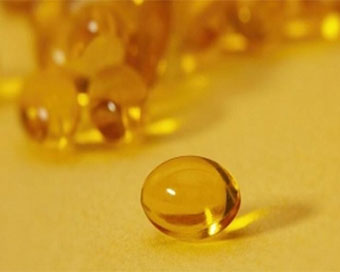Gallery
 PM Modi visit USA
PM Modi visit USA Only the mirror in my washroom and phone gallery see the crazy me : Sara Khan
Only the mirror in my washroom and phone gallery see the crazy me : Sara Khan Karnataka rain fury: Photos of flooded streets, uprooted trees
Karnataka rain fury: Photos of flooded streets, uprooted trees Cannes 2022: Deepika Padukone stuns at the French Riviera in Sabyasachi outfit
Cannes 2022: Deepika Padukone stuns at the French Riviera in Sabyasachi outfit Ranbir Kapoor And Alia Bhatt's Wedding Pics - Sealed With A Kiss
Ranbir Kapoor And Alia Bhatt's Wedding Pics - Sealed With A Kiss Oscars 2022: Every Academy Award Winner
Oscars 2022: Every Academy Award Winner Shane Warne (1969-2022): Australian cricket legend's life in pictures
Shane Warne (1969-2022): Australian cricket legend's life in pictures Photos: What Russia's invasion of Ukraine looks like on the ground
Photos: What Russia's invasion of Ukraine looks like on the ground Lata Mangeshkar (1929-2022): A pictorial tribute to the 'Nightingale of India'
Lata Mangeshkar (1929-2022): A pictorial tribute to the 'Nightingale of India' PM Modi unveils 216-feet tall Statue of Equality in Hyderabad (PHOTOS)
PM Modi unveils 216-feet tall Statue of Equality in Hyderabad (PHOTOS)The Badminton Association of India (BAI) has announced a 14-member-strong India squad for
- Men’s Sr Hockey Nationals to be played in division-based format from April 4
- Mensik denies Djokovic 100th title in Miami final
- KIPG: Son of a vegetable vendor, Bihar’s Jhandu Kumar eyes Worlds, 2028 Paralympics
- Hardik Singh credits hard work and team unity for receiving HI Midfielder of the Year award
- Djokovic, Alcaraz land in same half of Miami draw
Researchers to explore how Vitamin D affects COVID-19 Last Updated : 30 Nov 2020 02:36:55 PM IST 
Vitamin D After several studies linked high vitamin D supplementation with reduced Covid-19 effects, now researchers from Penn State University in the US, to study whether vitamin D could help people ward off or reduce symptoms caused by coronavirus.
The research team, including one of Indian-origin, have received nearly $241,000 from the National Institutes of Health (NIH) for research on how vitamin D regulates the immune system in the gastrointestinal tract.Cantorna said the addition of two key collaborators in the study are virologist Troy Sutton and Girish Kirimanjiswara, associate professor whose research focuses on immunology and infectious diseases."Patients with acute respiratory infections have been shown to be vitamin D deficient, and vitamin D supplements have been touted as being useful in high doses for preventing seasonal influenza," Cantorna said."Meanwhile, the emergence of SARS-CoV-2 has generated interest in the potential of high-dose vitamin D supplements to prevent and treat severe disease associated with the Covid-19 pandemic," Cantorna added.The research group has shown that vitamin D plays an important role in maintaining health in the gastrointestinal tract.Higher levels of vitamin D reduce susceptibility to inflammatory bowel disease and Crohn's disease, as well as gut and lung infections in animals and people.However, too much vitamin D can be harmful.Cantorna noted that the local and systemic inflammation caused by SARS-CoV-2 infection is not well understood, and controlling such inflammation may improve outcomes for COVID-19 patients.Although low vitamin D status has been associated with acute respiratory diseases, research has not confirmed a causal relationship."We don't yet fully understand the mechanisms underlying the effects of vitamin D in the lung or how vitamin D regulates host immunity to viral infection," she said."These significant knowledge gaps have hindered the development of interventions and accurate messaging that include vitamin D for the treatment and prevention of respiratory disease," she noted.Using mouse and hamster models, the research team will test whether supplemental vitamin D treatments will limit viral replication and inflammation in the lung leading to protection against severe SARS-CoV-2 infection."We plan to determine the effects, dose and timing of possible vitamin D interventions in infected animals," Cantorna said."Because SARS-CoV-2 has been shown to infect the gastrointestinal tract, the benefits of vitamin D might include regulation of gastrointestinal immunity as well as lung immunity," the author wrote.IANS New York For Latest Updates Please-
Join us on
Follow us on








172.31.16.186







